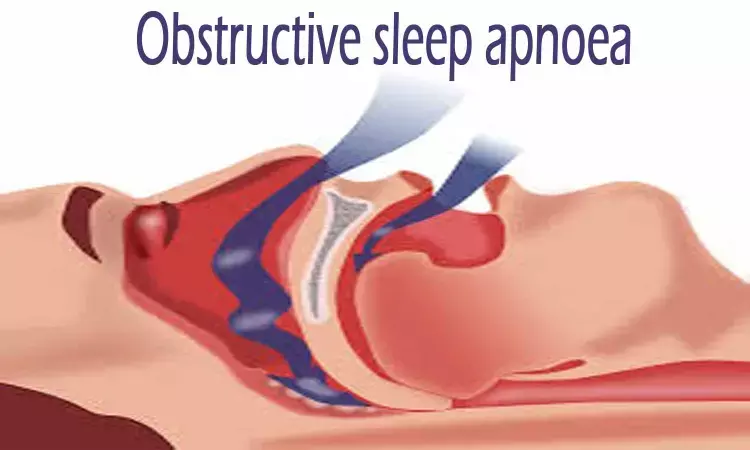- Home
- Medical news & Guidelines
- Anesthesiology
- Cardiology and CTVS
- Critical Care
- Dentistry
- Dermatology
- Diabetes and Endocrinology
- ENT
- Gastroenterology
- Medicine
- Nephrology
- Neurology
- Obstretics-Gynaecology
- Oncology
- Ophthalmology
- Orthopaedics
- Pediatrics-Neonatology
- Psychiatry
- Pulmonology
- Radiology
- Surgery
- Urology
- Laboratory Medicine
- Diet
- Nursing
- Paramedical
- Physiotherapy
- Health news
- Fact Check
- Bone Health Fact Check
- Brain Health Fact Check
- Cancer Related Fact Check
- Child Care Fact Check
- Dental and oral health fact check
- Diabetes and metabolic health fact check
- Diet and Nutrition Fact Check
- Eye and ENT Care Fact Check
- Fitness fact check
- Gut health fact check
- Heart health fact check
- Kidney health fact check
- Medical education fact check
- Men's health fact check
- Respiratory fact check
- Skin and hair care fact check
- Vaccine and Immunization fact check
- Women's health fact check
- AYUSH
- State News
- Andaman and Nicobar Islands
- Andhra Pradesh
- Arunachal Pradesh
- Assam
- Bihar
- Chandigarh
- Chattisgarh
- Dadra and Nagar Haveli
- Daman and Diu
- Delhi
- Goa
- Gujarat
- Haryana
- Himachal Pradesh
- Jammu & Kashmir
- Jharkhand
- Karnataka
- Kerala
- Ladakh
- Lakshadweep
- Madhya Pradesh
- Maharashtra
- Manipur
- Meghalaya
- Mizoram
- Nagaland
- Odisha
- Puducherry
- Punjab
- Rajasthan
- Sikkim
- Tamil Nadu
- Telangana
- Tripura
- Uttar Pradesh
- Uttrakhand
- West Bengal
- Medical Education
- Industry
Obstructive sleep apnea linked to increased risk of dementia, Study finds

According to recent research, investigators have found that obstructive sleep apnea (OSA) has been linked to an increase in a protein, called beta-amyloid, that builds upon the walls of the arteries in the brain and in turn, increases the risk of dementia.
OSA is a common sleep disorder, affecting about 1 billion people worldwide and is caused by the collapse of the airway during sleep, resulting in intermittent dips in oxygen levels and arousals from sleep. The OSA group recorded a higher amyloid burden, poorer sleep efficiency and less time spent in stage N3 sleep (a regenerative period where your body heals and repairs itself).
Few studies have cross-sectionally examined whether clinically-confirmed OSA is associated with a higher brain amyloid burden.
Therefore, Jackson, Melinda L, and associates from the Turner Institute for Brain and Mental Health, School of Psychological Sciences, Monash University, Clayton, Australia conducted the present study to compare brain amyloid burden in individuals with untreated OSA and healthy controls, and explore associations between amyloid burden and polysomnographic and subjective measures of sleep, demographics, and mood.
The authors assessed 34 individuals with OSA with a mean age 57.5±4.1 y including 19 males and 12 controls (mean age 58.5±4.2 y; 6 males) who underwent a clinical polysomnogram and an 11C-PiB positron emission tomography (PET) scan to quantify amyloid burden.
The following findings were noted-
a. Amyloid burden was elevated in the OSA group relative to controls, and was significantly higher in those with severe OSA relative to mild/moderate OSA.
b. Correlation analyses indicated that higher amyloid burden was associated with a higher Non-REM apnea hypopnea index, poorer sleep efficiency, and less time spent in stage N3 sleep, when controlling for age.
"The significance of finding the association between increased brain amyloid in patients with OSA will allow for further research to explore in more detail the implications of treating OSA for reducing dementia risk," Dr. Jackson said.
Hence, the authors thereby concluded that "severe OSA is associated with a modest elevation of brain amyloid, the significance of which should be further investigated to explore the implications for dementia risk."
For further reference, log on to:
Dr. Nandita Mohan is a practicing pediatric dentist with more than 5 years of clinical work experience. Along with this, she is equally interested in keeping herself up to date about the latest developments in the field of medicine and dentistry which is the driving force for her to be in association with Medical Dialogues. She also has her name attached with many publications; both national and international. She has pursued her BDS from Rajiv Gandhi University of Health Sciences, Bangalore and later went to enter her dream specialty (MDS) in the Department of Pedodontics and Preventive Dentistry from Pt. B.D. Sharma University of Health Sciences. Through all the years of experience, her core interest in learning something new has never stopped. She can be contacted at editorial@medicaldialogues.in. Contact no. 011-43720751
Dr Kamal Kant Kohli-MBBS, DTCD- a chest specialist with more than 30 years of practice and a flair for writing clinical articles, Dr Kamal Kant Kohli joined Medical Dialogues as a Chief Editor of Medical News. Besides writing articles, as an editor, he proofreads and verifies all the medical content published on Medical Dialogues including those coming from journals, studies,medical conferences,guidelines etc. Email: drkohli@medicaldialogues.in. Contact no. 011-43720751


